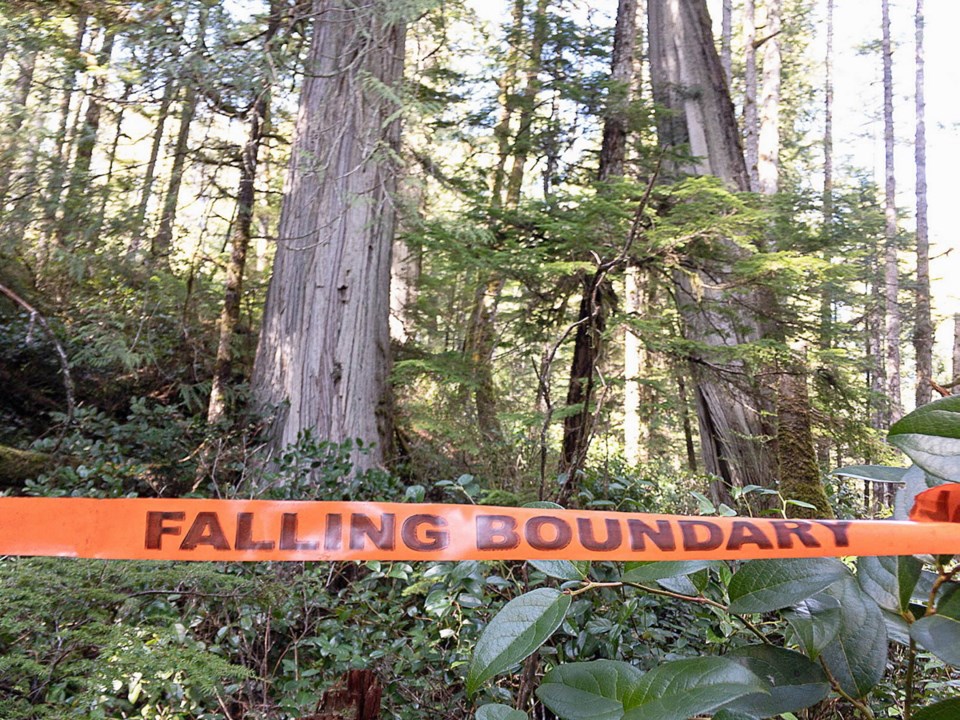Vancouver Island marches ever closer to losing its last remaining productive old-growth forests, and yet government after government continues to advance the same policies. So far, the B.C. NDP government has maintained that same status quo.
Let me be clear: Logging productive old growth is not in any way sustainable. It’s a finite resource on Vancouver Island, and most of it is already gone. That’s a critical threat — not only for species and habitats, but for jobs. There are mills that are fitted to process only old growth. What are those workers going to do when we run out?
It’s time we took a different approach that protects our old-growth forests and gives a real future to the communities that rely on them.
Our B.C. Green offices have received more than 20,000 emails from concerned British Columbians asking why the province continues to eradicate its old growth.
And not just any old growth. These are some of the most pristine, intact and biodiverse habitats in the world. They support not just flora and fauna, but entire industries and communities.
This month, in a review of B.C. Timber Sales’ sales schedule, environmental organizations Elphinstone Logging Focus and Sierra Club B.C. revealed that the B.C. government plans to auction more than 1,300 hectares of cutblocks in old-growth forests across Vancouver Island in 2019.
More than 100 hectares of this old-growth forest scheduled to be clearcut is adjacent to Juan de Fuca Provincial Park located northeast of Botanical Beach and south of Port Renfrew. After immense public outcry, the political repercussions were enough to spur the province’s timber agency to “postpone” the auction pending consultation with a stakeholder they had apparently overlooked.
Let’s crunch the numbers. At present, 79 per cent of the original productive old-growth forests on B.C.’s southern coast have been logged, including 90 per cent of the valley bottoms where the largest trees grow. Only eight per cent of Vancouver Island’s original productive old-growth forests are protected in parks and old-growth management areas.
But you might not see these same numbers from government. Why?
By deliberately choosing how old growth is defined, measured and valued, the B.C. NDP government is continuing the same policy approach we saw under the B.C. Liberals that will log most of our old-growth forests.
One tactic government uses is to re-define “old growth” — to treat a sub-alpine ancient forest, where the trees might never grow more than a few dozen feet high, the same as a valley bottom, where the centuries-old giants ascend into the heavens. These sub-alpine forests aren’t valuable for logging, so it’s convenient to “protect” them. This inflates how much old-growth is “protected” from being logged.
B.C. Greens have been an invaluable contributor to the Clean B.C. economic plan and on other files on which our values align with government. On old growth, however, we are deeply concerned that this government simply won’t do what is necessary to protect our old growth forests and the communities that rely on them. That’s why we three Green MLAs are speaking out: To hold government accountable. British Columbians deserve better.
We must change how land-use decisions are made in this province, to create healthy, sustainable, resilient communities as the impacts of climate change increase and intensify.
We need to ensure that the people who live on the land, who depend on the water and soil, are participating in decisions about that land. First Nations, local community representatives and local governments need to be at the table. Port Renfrew has re-defined itself as the “Tall Tree Capital of Canada,” generating a sustainable ecotourism-based economy. Remove the tall trees and this burgeoning economy, along with its ecosystem, falters.
We also must immediately begin the transition to second-growth forestry. That means investing in mill retrofits and incentivizing value-added manufacturing. It is possible to create a second-growth industry that moves us away from the boom-and-bust cycle that workers have been perpetually trapped in.
We must protect the last of the old growth on Vancouver Island for future generations, because we recognize that ultimately it belongs to them, not us. We demand government start making decisions that our grandchildren won’t have to forgive us for.
Sonia Furstenau is the Green Party MLA for Cowichan Valley.



